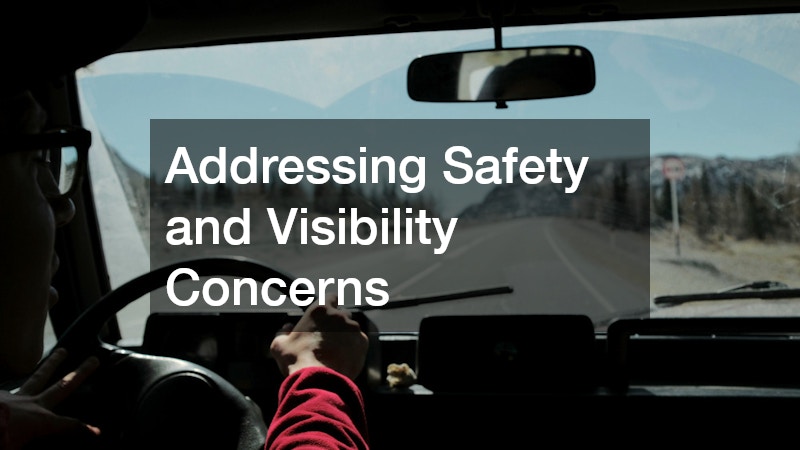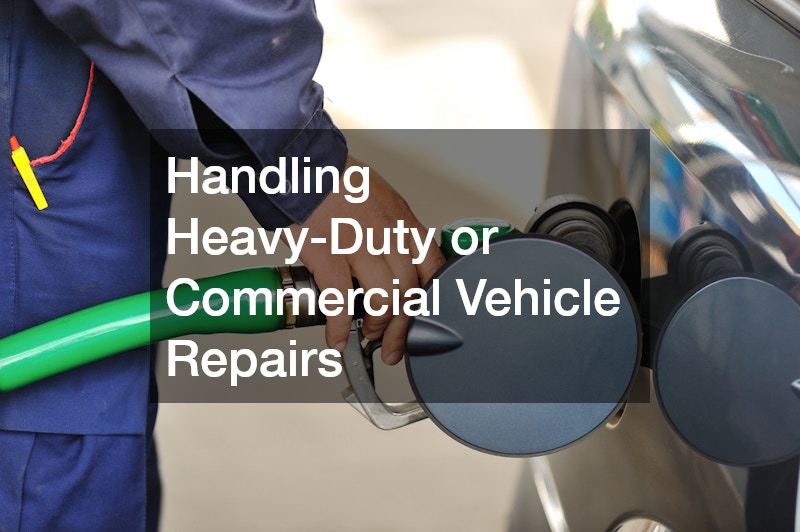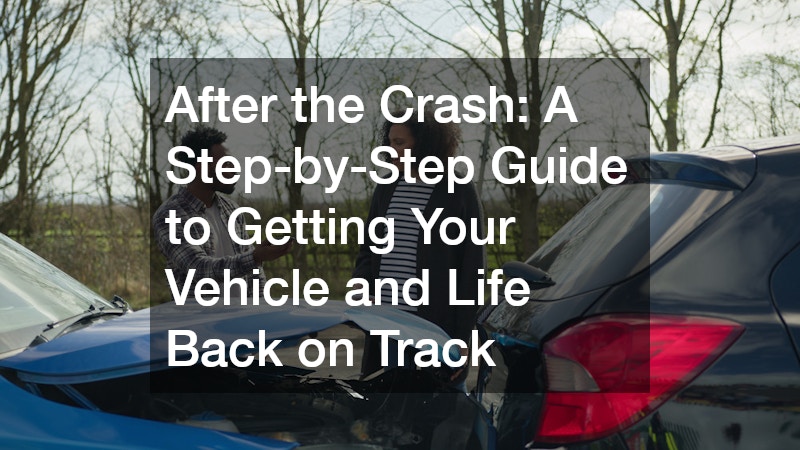Car accidents can happen when you least expect them, leaving you with damage to your vehicle, uncertainty about repairs, and questions about your legal rights. Whether it’s a minor fender bender or a serious collision, the aftermath can feel overwhelming. Knowing what to do immediately after a crash can make a tremendous difference in protecting both your health and finances. This guide walks you through every step of recovery—from handling the initial shock to repairing your vehicle and seeking legal support when necessary.
The days following an accident are crucial for documenting evidence, filing insurance claims, and ensuring your car receives professional evaluation. It’s also a time when you may need to rely on trusted repair professionals, rental services, and attorneys who can guide you through the process. By staying organized and following a clear plan, you can minimize stress and prevent small issues from turning into long-term setbacks. This article covers practical steps that every driver can take to recover physically, emotionally, and financially after an accident while ensuring their vehicle is restored safely and efficiently.
1. Assessing Vehicle Damage and Choosing the Right Repair Experts
The first major task after an accident is assessing your vehicle’s damage. Even if the exterior looks fine, internal components can suffer impact-related problems that require specialized care. This is especially true for imported or luxury vehicles that may need attention from professionals who specialize in foreign auto repair. These experts have the knowledge, diagnostic tools, and manufacturer-approved parts required to restore performance and ensure the car meets original specifications.
It’s important not to delay professional inspection—some issues, like fluid leaks or misalignments, may worsen over time. You should contact your insurance company immediately and provide photographs of all visible damage. If your car is not safe to drive, request a tow to a reputable shop. Be sure to check for certifications such as ASE or manufacturer-specific endorsements before authorizing repairs. A detailed repair estimate helps avoid surprises and ensures the work performed matches your insurance coverage. Prioritizing proper assessment early on prevents recurring problems and guarantees that your vehicle remains reliable once it’s back on the road.
2. Addressing Safety and Visibility Concerns

Broken windows, cracked windshields, or scratched tint can compromise your visibility and your car’s safety. For this reason, scheduling professional auto glass tinting services can be part of the recovery process. These services not only restore your vehicle’s appearance but also help reinforce shattered glass and protect the interior from UV rays. Replacing or repairing damaged glass should be done before colder weather or moisture sets in, as small cracks can expand and create bigger problems.
During this stage, make sure the technician checks all safety sensors or defrosting elements embedded within the glass—modern vehicles often have advanced features that require recalibration. Having properly installed glass ensures that airbags and cameras function correctly in the event of another incident. You might also take this opportunity to choose upgraded materials or improved tinting that enhance both comfort and privacy. By addressing glass and visibility issues promptly, you’ll not only restore your car’s aesthetics but also improve safety for yourself and your passengers.
3. Ensuring Smooth Handling and Stability
Even minor collisions can affect a car’s alignment, steering, and balance. For many drivers, post-accident vibration or uneven tire wear are signs that the vehicle may need suspension repair. A skilled mechanic can inspect struts, shocks, control arms, and other critical components to ensure everything is aligned correctly. When left unaddressed, suspension problems can make handling unpredictable, increase stopping distance, and put additional stress on other parts of the vehicle.
It’s a good idea to have the alignment checked once repairs are complete to prevent premature tire wear. Modern repair shops use precision equipment to restore proper geometry and ride quality. You should also check for bent wheels, damaged bushings, or leaking hydraulic components that might have resulted from the collision’s impact. By repairing your suspension system early, you’ll regain stability and comfort, ensuring a smoother and safer driving experience. A properly functioning suspension also helps your vehicle perform efficiently, which saves you money on fuel and future repairs.
4. Handling Heavy-Duty or Commercial Vehicle Repairs

If you operate larger vehicles or rely on heavy-duty equipment for work, finding the right specialists is critical. That’s where diesel machine shops come into play. These facilities handle complex repairs for diesel engines, including trucks, buses, and commercial vehicles. After an accident, professional technicians can assess damage to fuel systems, injectors, and turbochargers—components that require precision work to maintain power and efficiency.
Because diesel engines operate under high pressure, improper repairs can lead to performance loss or even catastrophic failure. Diesel machine shops often have advanced testing equipment that ensures your vehicle is restored to manufacturer standards. For business owners, minimizing downtime is key, and specialized diesel technicians can help you get your fleet back on the road quickly. They can also coordinate with your insurance provider for seamless claims processing. Whether you manage a single work truck or a group of vehicles, using qualified diesel experts ensures durability, reliability, and safe operation after an accident.
5. Managing Temporary Transportation Needs
When your car is in the shop, you’ll need an alternative means of transportation. Many people choose trailer rentals as a flexible option, especially if they must transport tools, goods, or another vehicle. Trailers come in various sizes and can be useful for moving damaged vehicles or hauling supplies while repairs are underway. Choosing the right rental company can save both time and money during your recovery process.
Before signing a rental agreement, inspect the trailer for existing damage and confirm that it’s compatible with your towing vehicle. You’ll also want to verify insurance coverage to ensure you’re protected in case of another incident. For those who need to move large equipment or RVs, some companies offer specialized trailers designed for heavy-duty hauling. Temporary mobility solutions like these help keep your life and work uninterrupted while your vehicle undergoes repairs. Taking advantage of short-term transportation options ensures you stay productive and independent throughout the recovery process.
6. Navigating Insurance and Legal Claims

After an accident, insurance paperwork and legal claims can quickly become overwhelming. That’s why contacting a car accident attorney can make a significant difference in how smoothly your recovery proceeds. These legal professionals specialize in negotiating with insurance companies, ensuring that you receive fair compensation for vehicle damage, medical expenses, and lost wages. They can also guide you through the process of documenting injuries, collecting evidence, and meeting claim deadlines.
An experienced attorney can identify whether you qualify for additional compensation under your state’s laws and handle communications on your behalf to prevent costly mistakes. If another driver was negligent or at fault, your lawyer can help build a strong case supported by police reports, witness statements, and medical documentation. Having legal support also reduces stress and allows you to focus on recovery rather than bureaucracy. Consulting an attorney early on ensures that your rights are fully protected and that the entire claims process remains transparent and efficient.
7. Restoring Recreational or Specialty Vehicles
For those who travel frequently or live on the road, an accident involving a motorhome or camper can be especially disruptive. Professional rv repair services are essential in such cases, offering comprehensive restoration for both mechanical systems and living spaces. Technicians specializing in RVs can address frame damage, electrical systems, plumbing, and interior finishes that might have been affected during the crash. Because these vehicles combine automotive and residential components, repairs require a unique blend of expertise.
During the repair process, it’s important to ensure that propane systems, water tanks, and electrical hookups are inspected for leaks or damage. Many RV service centers also offer roof resealing, window replacements, and paint restoration to return the vehicle to pre-accident condition. If your insurance covers RVs, make sure the shop coordinates directly with your provider for smooth billing. Getting your recreational vehicle back in shape quickly means you can return to your travels safely and comfortably, without compromising functionality or design.
8. Understanding Legal Defense for Complex Cases

Not every accident is straightforward—some involve serious allegations that require strong legal representation. If alcohol or controlled substances were involved, hiring a qualified drunk driving attorney is crucial. These professionals understand the complexities of DUI and DWI cases, including how to navigate license suspension, criminal charges, and court proceedings. They can evaluate whether proper testing procedures were followed and explore possible defenses to reduce penalties or dismiss charges altogether.
Beyond handling criminal defense, a drunk driving attorney can also help protect your employment and insurance status. Legal experts often negotiate plea deals, request alternative sentencing options, or arrange rehabilitation programs when appropriate. Their guidance is invaluable for ensuring that you understand every step of the process and make informed decisions. Even if you’re not at fault, consulting a lawyer early ensures that your rights remain protected in complex legal situations. Having professional representation provides clarity, direction, and peace of mind during one of life’s most stressful experiences.
9. Coordinating Vehicle Removal and Storage
Immediately after an accident, one of your first priorities should be safely moving your vehicle off the road. Contacting a reliable towing company is the best way to prevent additional damage and ensure your car reaches a secure location for inspection. Professional towing services can handle everything from light-duty cars to heavy-duty trucks, using specialized equipment to load and transport vehicles safely. They also provide storage facilities if your car needs to remain off-site while insurance adjusters conduct their evaluation.
When selecting a towing provider, confirm that they are licensed, insured, and experienced with accident recovery. Many companies offer 24-hour service, which is especially helpful if your crash occurs at night or in severe weather. You can also ask whether the towing fee can be billed directly to your insurance company. Efficient coordination with towing professionals not only speeds up the claims process but also ensures your vehicle is handled with care from the moment it leaves the scene.
10. Seeking Justice for Unresolved or Uninsured Collisions
Sometimes, the person responsible for your accident cannot be identified or doesn’t have sufficient insurance. In such cases, consulting hit and run lawyers can help you recover compensation that might otherwise seem out of reach. These attorneys specialize in cases where the at-fault driver flees the scene, using evidence such as traffic cameras, witness reports, or forensic data to track down the offender. If the driver cannot be located, your lawyer can still help you pursue compensation through your own uninsured motorist coverage.
Working with legal professionals who handle these specific cases ensures that you understand your rights and options fully. They can manage communications with insurance adjusters and file the necessary paperwork to prevent claim delays. Even when justice seems uncertain, experienced attorneys can provide valuable guidance and emotional reassurance. Taking legal action with the help of qualified professionals helps hold negligent drivers accountable and restores your confidence in moving forward after a difficult event.
Recovering after a vehicle accident is about more than just fixing your car—it’s about restoring your sense of stability and peace of mind. From finding the right repair specialists to managing legal and insurance issues, each step plays a role in getting your life back on track. The process may feel overwhelming at times, but having a clear plan and reliable professionals by your side makes all the difference.
Addressing every aspect—from mechanical repairs and temporary transportation to legal representation—ensures you’re fully protected and supported. Whether your vehicle requires specialized attention, your case involves complex circumstances, or you simply need guidance on next steps, taking action early can save time, money, and stress. By staying informed and proactive, you’ll not only recover from the accident itself but also emerge with greater confidence and preparedness for the road ahead. The path to recovery begins with knowledge, organization, and the commitment to rebuild stronger than before.

